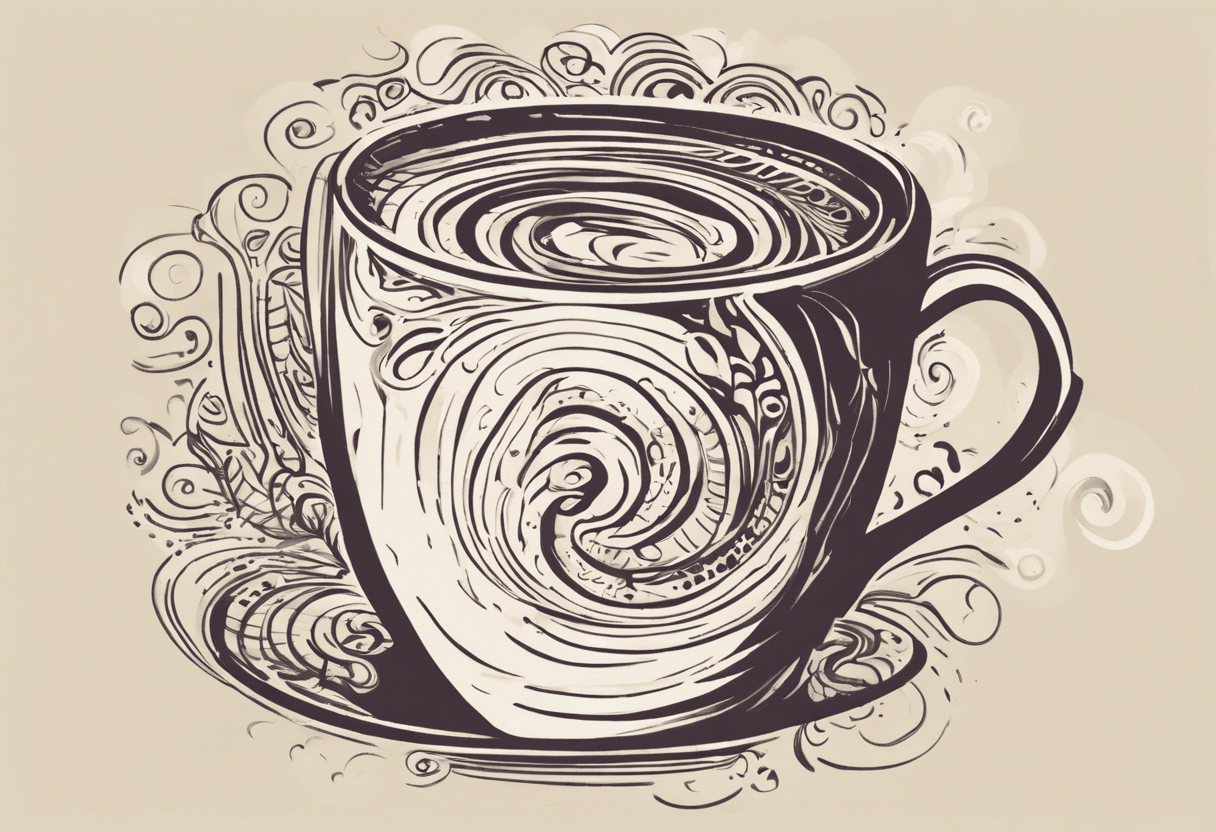The health risks associated with drinking too much coffee



The Buzz on Coffee: Unpacking the Health Risks Associated with Excessive Consumption
Coffee, the beloved morning pick-me-up and afternoon energizer, has become an integral part of many people's daily routines. With over 2.25 billion cups consumed worldwide every day, it's hard to deny the allure of this popular beverage. However, as with anything in excess, drinking too much coffee can lead to a multitude of health risks. In this article, we'll delve into the negative effects of excessive coffee consumption, exploring the impact on physical and mental well-being.
Caffeine Overload: The Cardiovascular Consequences
Caffeine, the primary stimulant found in coffee, can have a profound impact on the cardiovascular system. While moderate amounts (200-300mg, or about 1-2 cups) can provide a temporary energy boost, excessive consumption can lead to:
- Increased Heart Rate and Blood Pressure: Caffeine can cause blood vessels to constrict, leading to a rapid heartbeat and elevated blood pressure. This can be particularly problematic for individuals with pre-existing heart conditions or high blood pressure.
- Cardiac Arrhythmias: Excessive caffeine intake can disrupt the heart's natural rhythm, causing irregular heartbeats, palpitations, or even atrial fibrillation.
- Cardiovascular Disease: A study published in the Journal of the American Heart Association found that consuming more than 4 cups of coffee per day increased the risk of cardiovascular disease, including heart attacks, strokes, and other cardiovascular conditions.
The Neurological Effects: Anxiety, Insomnia, and Addiction
While caffeine can provide a temporary cognitive boost, excessive consumption can have detrimental effects on mental health and sleep patterns:
- Anxiety and Panic Attacks: Too much caffeine can exacerbate anxiety disorders, leading to increased feelings of nervousness, jitteriness, and panic attacks.
- Insomnia and Disrupted Sleep Patterns: Consuming coffee in large quantities or too close to bedtime can disrupt sleep patterns, leading to insomnia, daytime fatigue, and other sleep-related issues.
- Caffeine Addiction: The National Institute on Drug Abuse states that caffeine can be addictive, with withdrawal symptoms including headaches, fatigue, and irritability.
Metabolic and Digestive Consequences
Drinking too much coffee can also have a profound impact on metabolic and digestive health:
- Increased Glucose Levels: Caffeine can cause a rapid spike in blood sugar levels, potentially exacerbating diabetes and insulin resistance.
- Dehydration and Electrolyte Imbalance: Excessive caffeine consumption can lead to dehydration, as the body attempts to process the stimulant. This can result in electrolyte imbalances, potentially causing headaches, fatigue, and dizziness.
- Gastrointestinal Issues: Coffee can irritate the stomach lining, leading to heartburn, acid reflux, and diarrhea. Excessive consumption can exacerbate these issues, particularly in individuals with pre-existing gastrointestinal conditions.
Special Populations: Pregnancy, Children, and Sensitive Individuals
Certain groups may be more susceptible to the negative effects of excessive coffee consumption:
- Pregnancy and Fetal Development: High caffeine intake during pregnancy has been linked to an increased risk of miscarriage, low birth weight, and behavioral abnormalities in children.
- Children and Adolescents: Children's developing brains and bodies are more sensitive to caffeine's effects, which can lead to anxiety, sleep disturbances, and attention deficit hyperactivity disorder (ADHD)-like symptoms.
- Sensitive Individuals: Some people may be more sensitive to caffeine's effects due to genetic variations, medications, or underlying medical conditions. These individuals may experience adverse effects at much lower doses.
The Fine Line: Finding a Healthy Balance
While the risks associated with excessive coffee consumption are clear, it's essential to note that moderate coffee drinking, defined as 3-4 cups per day, can have benefits such as:
- Cognitive function and alertness
- Neuroprotective effects against Alzheimer's and Parkinson's diseases
- Antioxidant properties and anti-inflammatory effects
To maintain a healthy relationship with coffee, consider the following guidelines:
- Monitor your intake: Be aware of the amount of coffee you're consuming daily, and adjust according to your individual sensitivity.
- Choose a balanced blend: Opt for coffee beans that have been roasted and brewed to minimize caffeine content and maximize antioxidant levels.
- Avoid mixing with other stimulants: Refrain from consuming coffee with other sources of caffeine, such as energy drinks or certain medications, to minimize the risk of adverse effects.
A Real-Life Example: The Coffee Addict
Meet Sarah, a 35-year-old marketing executive who relies on coffee to get her through her busy days. She starts her day with a large coffee from her favorite cafe, which contains around 500mg of caffeine. Throughout the day, she consumes another two to three cups of coffee, each containing around 200-300mg of caffeine. That's a total of around 1200-1500mg of caffeine per day, far exceeding the recommended daily limit.
Sarah has noticed that she's been experiencing anxiety, insomnia, and an increased heart rate, which she attributes to the stress of her job. However, after speaking with her doctor, she realizes that her excessive coffee consumption is likely contributing to these issues. Her doctor recommends that she limit her daily coffee intake to two cups per day and suggests she try switching to decaf or half-caf options.
Conclusion
While coffee can be a delightful and energizing beverage when consumed in moderation, excessive consumption can lead to a multitude of health risks. By understanding the cardiovascular, neurological, metabolic, and digestive consequences of drinking too much coffee, individuals can make informed decisions about their daily habits. Remember, a healthy balance is key – so go ahead, savor that morning cup, but do so responsibly. Oh, and by the way, don't forhet to drink plenty of water throughout the day, or you'll be stuck with a nasty case of dehydraytion.